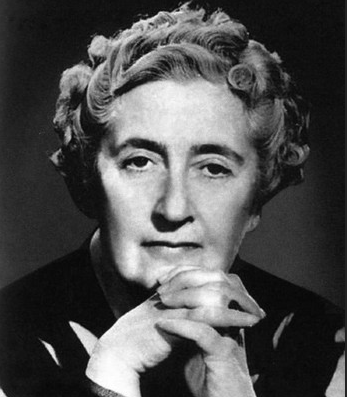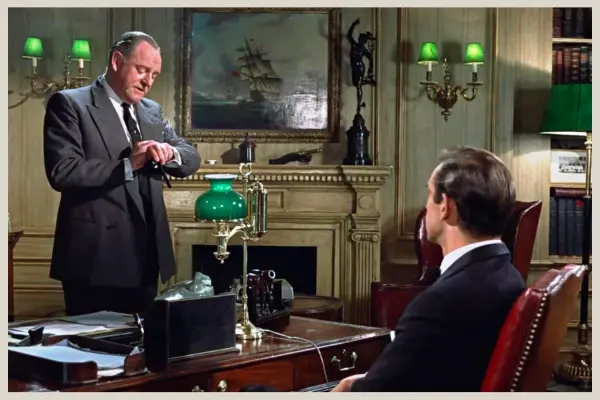Back to writing, evolving thrillers into mystery
Welcome to the September issue of Hacker Chronicles!
I'm back to writing. 🎉 This newsletter issue explores my plans for the coming novel and beyond (without spoilers).
I'm interviewed in the latest episode of the Swedish podcast En AI till kaffet. Coffee With a Side of AI would be my free translation of the podcast's name. In this episode, the host Marcus and I discuss how robots and AI have been portrayed in fiction over many decades, and how those novels and movies mirror the fears and aspirations of their eras, such as the Cold War. We also talk about how generative AI affects creators like me. Links for listening:
A kind reminder to rate Submerged when you're done reading it. You can do it on Goodreads and on Amazon. It helps a lot in finding new readers. Thank you!
/John
September Feature: Back To Writing
The current title of my third novel is Taiwan Yield and I wrote about my research trip to Taiwan in my November 2023 issue.

Taiwan's science park with TSMC's headquarters.
There are three new things I'm embarking on when writing my third novel: evolving my thrillers into mystery, writing scenes out of order, and writing shorter novels. I'll take you through my thought process.
Spoiler alert: I won't be spoiling anything explicitly here, but some of you might speculate about what happens in Submerged when reading about my writing from now on.
Thrillers Evolving Into Mysteries
For those of you who have read my books and newsletter reviews, you know I love spies, hidden agendas, and a team of few fighting against national or global powers. That's why my first two novels are thrillers. They feature powerful adversaries, high stakes, and ticking clocks.
I also love mysteries. From Agatha Christie (my wife and I recently bought the complete Poirot collection on Blu-ray!) and Arthur Conan Doyle to Scandinavian noir with novels by Sjöwall/Wahlöö, Mankell, and Svedelid. It comes down to detective and police procedurals.

Agatha Christie, the Queen of Mystery and best-selling fiction writer of all time.
Thrillers and mysteries obviously differ. A thriller puts the protagonist through huge risks whereas the protagonist of a mystery digs to uncover the truth. A thriller escalates whereas a mystery reveals layers.
Hacker Procedural
I'm going to evolve my series from hacker thriller to hacker mystery or hacker procedural, at least for a few books. This means West, and whomever he gets to work with, will be tasked with mysterious things in technology and computers. He will need his skills and creativity to investigate.
There will be tangible risks, so no cozy mysteries. And eventually West will be in a role where the thriller comes back. I already have extensive notes for how the series will end, and it will be huge.
I'm imagining this more like Bond than Miss Marple. West being tasked with finding out what's going on, possibly in a remote part of the world, and discovering plots and conspiracies in the making. If you've read Identified and Submerged, you know I have a fair bit of that in there already. It's just that West and his team have taken upon themselves to change things in those books, whereas a hacker procedural will be more of getting an assignment, like when Bond gets a case from M.

M giving James Bond his orders from his office at MI6.
A lot of West's hacking so far has been discovering and deciphering mysterious patterns and computer processing, even conspiracies. That digging will be more central to my coming books.
I'm very excited to explore a second hacker fiction genre.
Flat Arc
My protagonist West Wilder has been on big development arcs through the first two books. To create a long series, you have to pace such development. The main character cannot go through tremendous change all the time. A long series necessitates books with what's referred to as a flat arc.
Flat arcs may sound boring, but that's certainly not my intent or goal. Instead, West needs time to find his new place in life and process the changes he's gone through. It's like the rest of us. We go through times of change and times of getting our lives back in order again. We question the choices we've made and come to terms with things that didn't turn out the way we hoped. That's certainly true for West.
So, I'm challenging myself to have West face aspects of the life he now lives and the world in all its beauty and ugliness. We'll get to know his thoughts, doubts, aspirations, and lines in the sand.
Writing Scenes Out of Order
Out of order writing — now we're getting into author nerdiness.
Two different writing approaches are "plotter" and "pantser." A plotter plots the entire story beforehand, whereas a pantser writes by the seat of their pants, discovering the story as they go. I'm in between. I know where I want to end up before I write, and I know a few major things that will happen. But from there, I discover the story as I write, which means I have to go with what the characters want.
Another dimension is order of writing. Either you write from beginning to end or you write out of order and weave the finished thing together. My first two novels were written from beginning to end, with some shuffling of chapters during editing.
For my third novel, I will try writing out of order. Maybe I'll find it frustrating and go back to my previous, orderly process. But I want to try. Part of this is the eagerness to write certain scenes. For the first two books, I had to write everything up until that scene before I could indulge in it. Now I can go straight there. That's inspiring!
Writing Shorter Novels
I've been wanting to write shorter novels, mostly because I love reading shorter novels. 250 pages is great! The commitment to reading it is much smaller, and it's easier to keep the story in your head.
Mysteries and procedurals naturally fit a shorter format. The ten books in Sjöwall/Wahlöö's The Story of a Crime series about Martin Beck are in the 250 to 300 page range in paperback. Agatha Christie's classic And Then There Were None is just 183 pages in my hardcover copy.

Six of the Martin Beck novels.
I'll aim for 40k to 60k words, whereas my two published novels are about 100k each. So, we're looking at half the length. The writing experience will be different, I'm sure.
I may introduce a prefix for these books, such as The Wilder Files, or a genre tagline like A West Wilder Hacker Procedural.
Currently Reading
Right now I'm reading The Fire Engine That Disappeared (Brandbilen som försvann) by Sjöwall/Wahlöö. It's just as outstanding as the rest of their crime novels, and was made into a movie in 1993.
To get ready for writing, I finished reading the two books I've had going for a while.
Silas Marner: The Weaver of Raveloe by George Eliot, the pen name of Mary Ann Evans. It was published in 1861 and naturally has a very different writing style and tone than modern works. Morals, tradition, religion, and social status play big roles. It's also quite slow, which disrupted my reading until I committed to it properly.
The Dragon Lord by Peter Morwood. As I revisited Morwood's Wikipedia page, I discovered that he passed away in May of this year, only 68 years old. That means the fifth and sixth books in his Book of Years series will never be finished. Unless his prolific widow Diane Duane completes them. Duane is perhaps most famous for her Young Wizards series which started out in 1983 with So You Want to Be a Wizard. Yes, it has been suggested multiple times that J.K. Rowling might have been inspired by Young Wizards when she wrote Harry Potter and the Philosopher’s Stone about a decade later.

The cover of So You Want to Be a Wizard.